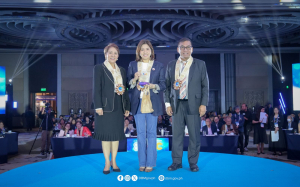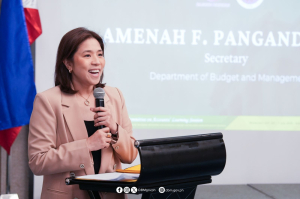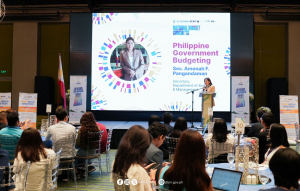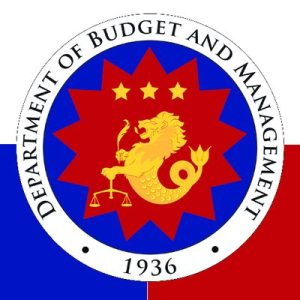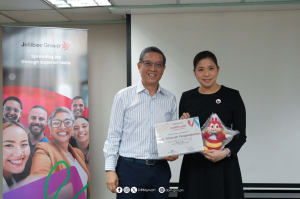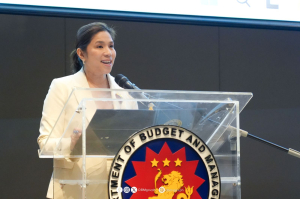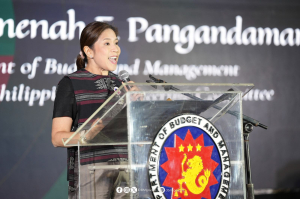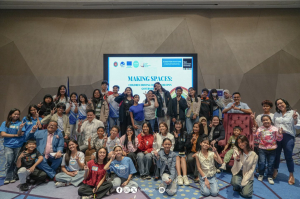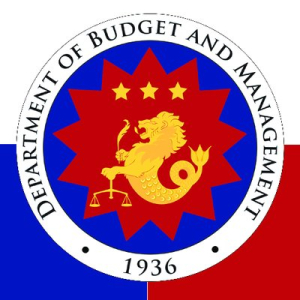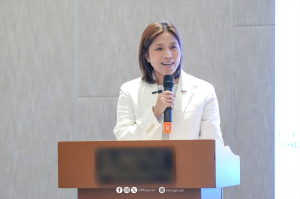
- Details

To NEDA Secretary Arsenio M. Balisacan, Undersecretary Joseph J. Capuno of the Investment Programming Group, our stakeholders in “Charting the Path Forward through Partnerships in M&E,” and all our participants in today’s forum, good afternoon.
Assalamu alaikum wa Raḥmatullahi wa Barakatuh.
First, I would like to congratulate the National Economic and Development Authority for the success of the 10th Monitoring and Evaluation or M&E Network Forum. Thank you for providing a venue to showcase the country’s M&E initiatives and for cultivating a community of practice on M&E for the past decade.
I am glad to note that for this year, our plenary and breakout sessions were able to showcase our current efforts towards further strengthening M&E responsive to the 8-Point Socioeconomic Agenda and the Philippine Development Plan (PDP) 2023-2028.
As you may already know, the proposed national budget for Fiscal Year (FY) 2024—the first budget fully prepared under the Administration of President Ferdinand R. Marcos Jr.—continues to pursue our Agenda for Prosperity, this time securing a future-proof and sustainable economy. It will continue to lay the groundwork for the realization of our country’s economic goals identified in the Medium-Term Fiscal Framework (MTFF), the 8-Point Socioeconomic Agenda, and the PDP.
And we are relentlessly working for the passage of this budget amounting to Php 5.768 trillion, or equivalent to 21.7 percent of our GDP, and an increase of 9.5 percent from this year’s level . I am happy to share that we are in the last stretch prior to the signing of our General Appropriations Act as the Senate already passed their version of the General Appropriations Bill last night.
But our work does not end here. In fact, this is just the beginning. What follows is the year-roundbudget execution and most importantly, the accountability phase of the budget cycle wherein agencies must set up and implement M&E mechanisms to ascertain the effectiveness of the programs and projects on which they spend.
Agencies likewise submit regular Financial Accountability Reports, as required by the DBM and the Commission on Audit. We then review the financial and physical performance of agencies against their targets to evaluate the efficiency and effectiveness of programs and closely monitor agencies’ performances. This is crucial so we can address bottlenecks proactively.
And this is exactly what we did when we issued Circular Letter No. 2023-10 last August, wherein we required all government agencies to submit “catch-up plans” to facilitate budget execution for the rest of FY 2023. Through this issuance, we also tried to ascertain the underlying causes or reasons for underperformance and undertake measures to address them.
Thankfully, National Government disbursement accelerated significantly from 93.4 percent of the program as of June 2023 to 98.9 percent as of September. This was mainly driven by the robust disbursement in the third quarter, reaching Php 3.82 trillion as of the end of September. DBM has also already released roughly 97.2 percent of our 2023 National Budget as of the end of September, while our Government Final Consumption Expenditure accelerated to 6.7 percent in the third quarter of this year.
And, I am very happy to note that all these contributed to our economy achieving a 5.9 percent growth for the third quarter of this year, significantly up from 4.3 percent in the second quarter as we pushed for greater efficiency in budget utilization through a whole-of-government approach.
Another crucial aspect of the budget accountability phase is citizen participation. To ensure transparency, DBM ensures the online availability, timeliness, and comprehensiveness of key budget documents including the People’s Budget series–the less technical yet comprehensive version of the government’s proposed and enacted national budgets.
We also ensure that citizens are able to participate in the monitoring of programs and projects through the Philippine Open Government Partnership (PH-OGP) which was recently institutionalized through Executive Order No. 31, s. 2023. This aims to ensure that the open government values of transparency, civic participation, accountability, and technological innovation are embedded in government policies and programs. And to further expand the open government space, we have successfully launched the OGPinas! National Advocacy Campaign, engaging hundreds of Filipinos around the country in pursuit of strengthening public participation in governance. We just conducted its final leg for this year last week in Davao City.
As you can see, monitoring and evaluation and people’s participation are crucial in ensuring that every budget allocation, decision, and program implementation will benefit the Filipino people. And so we are grateful for M&E platforms such as this forum.
Again, congratulations to NEDA and our M&E partners and stakeholders! Rest assured that the DBM is one with you as you build the competence of individuals and institutions in the creation and use of M&E in the public sector, and as you consolidate the efforts of communities on M&E, all towards the achievement of our Agenda for Prosperity.
Thank you very much. Wabillahi Tawfiq Wal Hidaya, Wasalamu alaikum wa rahmatullahi wa Barakatuhu.
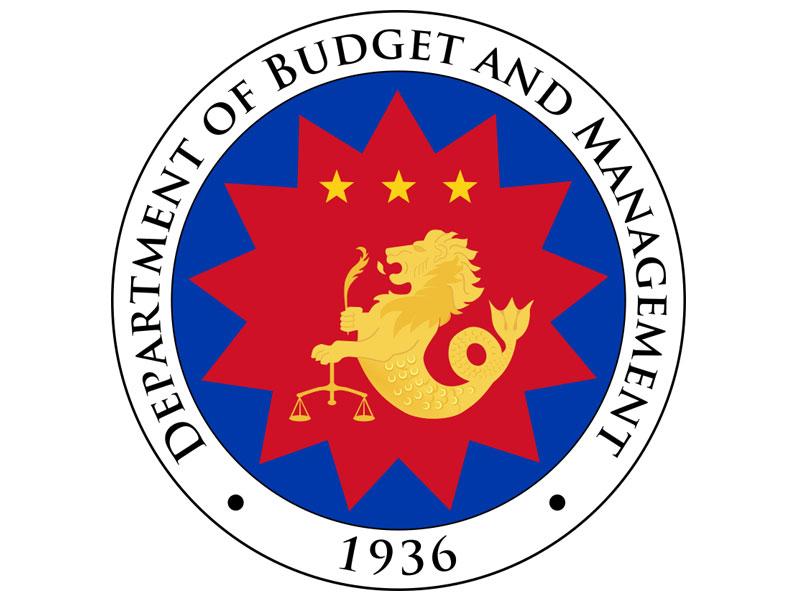
- Details
My heartfelt greetings to our fellow champions and advocates of open government and good governance!
Assalamu alaikum wa Raḥmatullahi wa Barakatuh.
I am Budget Secretary Amenah F. Pangandaman, Chair of the Philippine Open Government Partnership.
It is my pleasure to deliver this keynote, albeit remotely, for the Eighth Academic Days on Open Government and Digital Issues. I would like to extend my sincerest thanks to the organizers of this conference for this platform to discuss open government and digital transformation—two of my top advocacies and priorities as Budget Secretary. Much more so, to share this message not only with my fellow Filipinos but also with professors, experts, and practitioners from around the world.
I cannot emphasize enough the crucial role that the academe plays in promoting a country’s social development and economic growth. Strengthening knowledge networks and platforms empowers our citizens and enables them to engage more in what we, in government, are doing.
I firmly believe that achieving a genuinely transformative and open government requires a whole-of-society approach—one that involves collaboration and co-creation among the government, the private sector, the academe, and civil society. Hence, the Philippine Open Government Partnership, or PH-OGP, has taken great strides to establish mechanisms to achieve this.
The Philippines is in fact one of the eight founding members of the Open Government Partnership or OGP, although even before joining the OGP, the Philippines had already facilitated high levels of engagement between the state and civil society.
But the OGP presented us with the opportunity to formalize efforts in opening up the government and mobilizing coalitions to bring issues that matter on the ground to the government’s attention.
This has resulted in various reforms with impactful outcomes.
For instance, the Citizen Participatory Audit Program of our Commission on Audit, which opened up the state’s auditing process to citizens, resulted in greater efficiency and effectiveness in the use of public resources and was hailed as an OGP Bright Spot Awardee in 2013.
In 2015, when the Philippines committed to the reform of reducing bureaucratic red tape in doing business in its 4th National Action Plan (NAP), the country’s ranking in the World Bank’s Doing Business Report improved. From 138 out of 189 countries in 2013, our rank went up to 108 in 2014 and 95 in 2015. More significantly, investments increased by 10 percent over the same period.
In 2016, we were recognized to be the first among over 50 countries to have achieved satisfactory progress in implementing the 2016 Extractives Industries Transparency Initiative Standard.
During the pandemic, the Philippines was one of the four countries and the only Asian country to have achieved an adequate level of accountability in its early COVID-19 fiscal policies driven by the Fiscal Openness Program of the Department of Budget and Management.
Alongside this, the country’s score in the 2021 Open Budget Survey remained above the global average, positioning the Philippines within the top 30 among over 120 participating countries. I am proud to share that the Philippines is considered a leader in the ASEAN Region in budget transparency.
Beyond these accolades, for me, the most momentous win for open government in the country has been the institutionalization of open government. With the support of our President, President Ferdinand Romualdez Marcos Jr., we now have Executive Order (EO) No. 31, series of 2023. This is a landmark EO through which the Executive, Legislative, and Judicial branches—despite being independent of each other—will now work closely to synchronize and complement open government initiatives.
On top of EO 31, we continue to advocate for open government through the following:
- We are bringing PH-OGP to the local level through our Open Government National Advocacy Campaign to Strengthen Public Participation, which we call OGPinas.
- For the youth, we have conducted the first-ever National OGP Consultation with Adolescents and Children.
- Towards digitalization for open government, our President, PBBM, has also signed Executive Order No. 29, which provides for the digital transformation of the bureaucracy through the full adoption of the Integrated Financial Management Information Systems.
- We are also reforming our 20-year-old Government Procurement Reform Act to include a public participation mechanism wherein at least two observers—one from the private sector and the other from a Civil Society Organization—will be invited to sit in procurement proceedings.
- We were also one of the selected countries to receive the grant from the 2023 Lift Impact Accelerator Program of the Open Contracting Partnership.
Finally, we are currently preparing our 6th PH-OGP National Action Plan, the country's first-ever medium-term open government action plan.
With all of these initiatives and endeavors, I hope that we can live up to the kind words of OGP Chief Executive Officer Sanjay Pradhan at the OGP Global Summit in Tallinn, Estonia wherein he lauded the Philippines for being [and I quote] "a trailblazer in open governance not only in Asia but also within the partnership."
We still have a lot to do in terms of open government but with your invaluable support—our fellow champions and advocates from different parts of the world—it is our fervent hope that we can write an OGP story that ends with a dream come true: a government that is inclusive, transparent, accountable, responsive, and truly open.
Thank you very much. Wabillahi Tawfiq Wal Hidaya, Wasalamu alaikum wa rahmatullahi wa Barakatuhu.

- Details

Isang magandang umaga po sa ating lahat!
Assalamu alaikum wa Raḥmatullahi wa Barakatuh.
First, allow me to express my sincerest gratitude to everyone who made this purposeful campaign successful through your invaluable support—the Local Government of Davao City, as represented by Councilor Myrna Dalodo-Ortiz; our very own, my DBM family here in Regions XI, XII, and CARAGA; our partner agencies, most especially the Department of the Interior and Local Government and the Philippine Information Agency; my fellow Maranao, Associate Justice Japar B. Dimaampao; our partners from Civil Society Organizations; our fellow public servants, and of course, our dear participants.
Alam po ba ninyo na ang Pilipinas ay isa sa walong bansang nagtatag o founding member ng Open Government Partnership o OGP? And under the Administration of President Ferdinand Romualdez Marcos Jr., through the issuance of Executive Order No. 31 last June 2023, we have now institutionalized the Philippine Open Government Partnership (PH-OGP).
In line with this EO, in the past few months, we have brought the OGPinas! National Advocacy Campaign to different strategic locations around the country—from Luzon, to the Visayas, and Mindanao, and maybe hopefully in the future, sa BARMM—in pursuit of strengthened public participation in policy-making and governance. And I couldn’t be happier that we are holding the culmination of this noble initiative here in my beloved land of promise, Mindanao.
Sa pag-iikot po namin sa iba’t ibang bahagi ng Pilipinas, nakita ko po na napakaraming magagaling at matutuwid na mga local officials na nagsusulong ng open government o bukas na pamamahala sa kanilang mga nasasakupan. At higit na mas marami po ang ating mga kababayan na nagpakita ng kanilang pakiki-isa sa ating adbokasiya. Gaya po ng sinabi ng Chief Executive Officer ng Open Government Partnership na si Sanjay Pradhan noong nakaraang OGP Global Summit sa Tallinn, Estonia, ang open government ay talagang nasa dugo nating mga Pilipino—at ang OGPinas! ay matibay na patunay nito.
But the call for open government and good governance must be stronger and louder here in Mindanao. Bilang isang taas-noong anak ng Mindanao, alam ko pong marami na tayong pinagdaanan para makamit ang kapayapaang ating tinatamasa ngayon. Ngayon, kailangan naman natin ang open government upang mapangalagaan at lalong mabigyang halaga ang tinatamasang kapayapaang ito.
Kaakibat po ng peacebuilding process ang pagsiguro na ang ating mga kapatid at kababayan sa Mindanao ay makaahon sa kahirapang bunga ng ilang taong labanan. As such, I firmly believe that peacebuilding and socioeconomic recovery will be sooner achieved if we invest in inclusive, responsive, and accountable governance systems. We need to establish public trust in our institutions that will strengthen our commitment to carry our people forward into a peaceful future.
Actually, PH-OGP is not new to Mindanao since the Province of South Cotabato joined the OGP Local Program in 2018, and has since crafted complementing local laws and resolutions that strengthen participatory governance. In fact, Governor Reynaldo Tamayo Jr. was with us during the OGP Global Summit. I hope that South Cotabato will be an inspiration to all provinces in Mindanao, and even BARMM, to embrace open government as they have.
We also recognize the significant contribution of our Civil Society Organizations, People’s Organizations, and movements at the grassroots level in pushing for peace in Mindanao so I want to emphasize that this Open Government movement, OGPinas, is for you—so that we can dialogue and work together towards transforming Mindanao from a land of promise to a land of promises fulfilled.
To my fellow Mindanaoans, please maximize this opportunity.
Together, let us achieve our vision for an open government, and let us empower others through this platform to make the changes we all desire for lasting peace and prosperity in Mindanao—tungo sa Bagong Pilipinas.
Mabuhay po kayo at ang OGPinas!
Maraming salamat po. Wabillahi Tawfiq Wal Hidaya, Wasalamu alaikum wa rahmatullahi wa Barakatuhu.

- Details

Good morning to all the advocates and champions of open government and good governance present here today, most especially to my fellow Philippine Open Government Partnership (PH-OGP) Steering Committee members.
Mabuhay po and welcome! It’s nice to see all of you again since Estonia—sa Europe pa! Ang layo-layo po ng trinavel namin but it was a good representation of the Philippine Open Government Partnership.
First, please allow me to take this opportunity to thank and express my sincerest commendation to our outgoing Non-Government Steering Committee Members. Your passion and dedication to pushing for open government in the country is unparalleled. The PH-OGP Steering Committee is truly fortunate to have you on board. Definitely, the incoming Non-Government representatives will have big shoes to fill. I know you will continue serving our kababayans, especially those in the most vulnerable sectors, and you will continue to serve them well. So I wish you all good luck in all of your future endeavors, and for sure, we will still see each other in the next PH-OGP engagements.
Looking back, we have a lot of achievements to be proud of and grateful for this year. Allow me to enumerate some of them.
In June of this year, Executive Order No. 31 was signed, institutionalizing PH-OGP in the country after more than a decade since we founded the movement along with seven other countries. And now, we have all three branches of the government coming together despite being independent of each other, solidifying our whole-of-government—in fact, whole-of-nation—approach to open government.
We showed strength in numbers at the 2023 OGP Global Summit held in Tallinn, Estonia last September where the Philippines was lauded by no less than the Chief Executive Officer of OGP, Mr. Sanjay Pradhan, as "a country with open government in its DNA."
We successfully launched the OGPinas! National Advocacy Campaign, in collaboration with the Department of the Interior and Local Government and the Philippine Information Agency, engaging hundreds of Filipinos around the country in pursuit of strengthening public participation in governance. In fact, its last leg for the year will happen tomorrow, and I hope to see you all there! I am also hoping that we get to see more initiatives such as this one to continue the momentum that we have created for citizen engagement.
Finally, our 6th National Action Plan, which we will be discussing today, will be the country's first-ever medium-term action plan for open government.
I believe these achievements were made possible because of our shared aspiration for a better Philippines, a better society, and a better future for all Filipinos. And we are together in this very room because we believe that it is through good governance that we will be able to achieve our common goal.
Para sa Bagong Pilipinas at mga Pilipino, let us remember that every commitment, every program, and every action plan that we will implement is a make-or-break for our kababayans who are dreaming of better quality and decent lives and aspire for a better Philippines with us.
Beyond action plans, we also hold the power to transform the lives of our fellow Filipinos through open government. So let us always keep this advocacy and the passion burning close to our hearts and bring it closer to the people.
Let us make this meeting as fruitful and as purposeful as can be so that we can transcend beyond action plans and realize a truly open government that will allow us to work together towards our Agenda for Prosperity.
Maraming salamat po. Wabillahi Tawfiq Wal Hidaya, Wasalamu alaikum wa rahmatullahi wa Barakatuhu.

- Details

A pleasant morning to the President and CEO of the Development Academy of the Philippines, Atty. Engelbert C. Caronan, Jr., our fellow workers in the government, partners from the private sector, and everyone who is watching us today.
Assalamu alaikum wa Raḥmatullahi wa Barakatuh.
Today’s event is anchored on the Government Quality Management Program or the GQMP. As you know, GQMP is a national government program that promotes and enhances quality improvement in the public sector. It aims to strengthen the institutional capacities of Public Sector Organizations (PSOs) in delivering citizen-focused public services and in implementing international standards-based Quality Management Systems (QMS). In other words, it is designed to steer the bureaucracy towards a more citizen-centric service delivery—that is, putting citizens at the heart of public institutions.
Kung sa private sector po ay mayroon po tayong tinatawag na customer service, tayo rin po sa gobyerno ay may pinagsisilbihan, at ‘yan po ay ang ating mga kababayan. In the new public governance realm, as public servants, we are managers and our fellow citizens are our customers.
In view of this, we have to ensure that the public services we deliver do not only respond to the actual needs of our people, but also improve the quality of their lives. Ang makapaghatid nang mas maginhawang buhay para sa lahat ng Pilipino sa pamamagitan nang mas magandang serbisyo publiko—ito ang nais nating makamit sa Bagong Pilipinas. Ito rin po ang hangarin natin para sa GQMP.
Hence, capacity-building and technical assistance on the development, implementation, and performance improvement of QMS, risk management, and service quality; citizen- and business-to-government satisfaction surveys; and promotion of government best practices through information dissemination and recognition of high-performing PSOs have been successfully conducted under the Program, among others.
And, I am happy to report that this has translated to capacitating 990 PSO key officers and staff in 2022 alone; 111 agencies were provided with technical assistance by the GQMP as of December 2022; and 200 ISO 9001:2015 Standard QMS certified agencies as of April 2023.
Meanwhile, I am also proud to share that in the 2022 Citizen Satisfaction Survey, our frontline government offices and agencies received an overall Government-to-Citizen Satisfaction Score of 96.96 percent from transacting citizens. This is a very huge improvement from our 2020 score of only 70.14. Thus, I would like to congratulate and commend our very hardworking fellow public servants for this wonderful achievement. Truly, you embody the essence of elevating quality public service!
I was also informed that part of this event’s program of activities is the 2023 Government Best Practice Recognition Ceremony, which will feature 10 presenters showcasing their exemplary innovations and best practices in public service delivery. I hope each of you will learn from these presentations and be inspired to pursue excellence in your respective organizations because I believe we must instill quality consciousness among our employees and a culture of quality in our government institutions.
Alongside the endeavors under the GQMP, we, at the Department of Budget and Management, are also working hard to contribute to improved productivity and public service delivery of the bureaucracy through the Fiscal Year 2024 National Budget, as well as structural reforms such as the proposed amendments to the Government Procurement Reform Act, the institutionalization of the Philippine Open Government Partnership, and the DBM’s digital transformation roadmap.
Citizen-centric service delivery is a journey, and the Philippines undeniably still has a long way to go. It is a long-term commitment that requires dedication and determination to stay the course. And so, we invite all of you, as the theme of this event suggests, to lead the way with quality management to better serve our citizens. Samahan ninyo po kami—let us work together to deliver the quality public service that every Filipino deserves towards our Agenda for Prosperity, tungo sa Bagong Pilipinas.
Thank you very much. Wabillahi Tawfiq Wal Hidaya, Wasalamu alaikum wa rahmatullahi wa Barakatuhu.
[1] Source: 2022 DAP PDC Annual Report
[2] Source: Government Quality Management Program: Retail Demand and Supply Analysis, Briefer/ Summary of Accomplishments as of December 2022, provided by SPIB
More Articles …
- 2024 PRIORITY EXPENDITURES: Laying the Groundwork for a Future-Proof and Sustainable Economy
- Tapat at Tumutugon: Capacitating Local Government Units in Public Financial Management
- Bukás Na Kinabukasan: Transformation to an Open Government
- MUSLIM MINDANAO: The Land of Fulfilled Promises, Peace, and Prosperity
